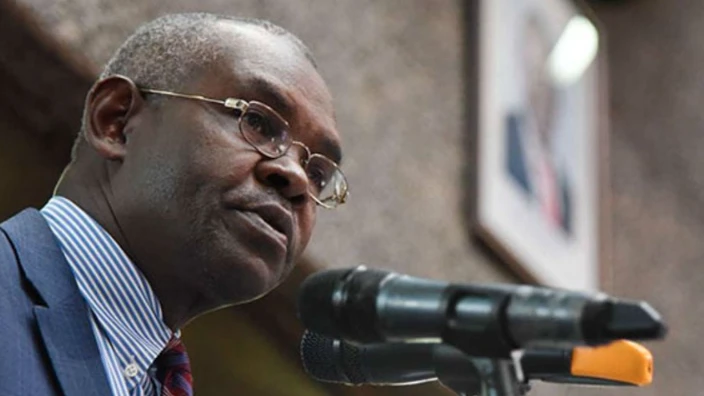
By News Agency , Agency
KENYA’S plan to split Safaricom from its dominant mobile money unit, M-Pesa, has stalled on the significant tax cost to the company.
The Central Bank of Kenya (CBK) revealed a Ksh75 billion tax that would result from the split is standing in the way of the separation.
CBK Governor Kamau Thugge announced the hurdle after a post-Monetary Policy Committee (MPC) briefing, indicating plans to meet with Safaricom’s board to address the unsettled tax issue.
“We have arranged to meet with the board of Safaricom in the near future,” said Dr Thugge yesterday in response to The Standard queries.
“One of the factors that has been delaying the delinkage of M-Pesa mobile money from the rest of Safaricom is the tax liability which is fairly significant on the order of at least or roughly Ksh75 billion and what to do with it,” explained Thugge.
The CBK boss said the Treasury needs to also be involved in the standoff while maintaining separation would allow for effective oversight.
Past legal attempts have failed amid mounting concerns that Safaricom, which is partly owned by South Africa’s Vodacom and Britain’s Vodafone has become too big through its dominant market share in voice, mobile data and mobile money.
“We believe that there needs to be a separation. We believe that the Central Bank needs to oversight M-Pesa and therefore we will continue to engage Safaricom and also the Treasury to see how quickly the separation can be done,” said Thugge.
“The separation of M-Pesa and Safaricom is still the plan because the Central Bank of Kenya must be able to oversight M-Pesa. There are some complications, I think, in terms of the amount of tax Safaricom will have to pay because of that separation,” Dr Thugge added.
The Kenya Kwanza administration has committed to having Safaricom split into standalone business units.
“Effective immediately after forming the government, the administration will seek the break-up of Safaricom Ltd into two distinct and separate business entities with a mobile telecommunications institution under the direct jurisdiction of the Communications Authority and the financial institution firmly under the jurisdiction of the Central Bank of Kenya,” reads part of the ruling coalition’s manifesto.
M-Pesa accounts for about 99.9 percent of the value of mobile money transactions, underlining the entrenchment of the platform in the economy. M-Pesa is seen as a de facto national payment system, which makes it a critical part of the economy.
The possibility of M-Pesa outages has in the past been viewed by government experts as a threat to the economy, especially for critical services such as money transfers.
A 2016 Treasury report and subsequent Treasury reports have often warned that a collapse of the M-Pesa service could, for instance, cause widespread disruption in the economy as witnessed by consumers in the recent outages.
This means M-Pesa is classified as a systemic risk to the country’s economy, underlining its crucial role. Kenya’s biggest telco has, however, raised fears that the planned split of its M-Pesa unit would lead to higher tax obligations.
Safaricom has often opposed the planned split, arguing that it would force it to create a new company to run M-Pesa, with the new entity taking with it both financial and physical assets, which would attract a 30 percent income tax.
Safaricom argued, in May last year before Parliament, that the split would disadvantage both the new firm and its shareholders.
“This transfer has not been occasioned by Safaricom, it’s actually been occasioned by regulatory pressure by CBK,” said PWC’s Associate Director Edna Gitachu on behalf of Safaricom in a petition to Parliament at the time.
“These two companies will ultimately be owned by the same shareholders, so our prayer is that as the transfer of assets is happening, it should be at a tax-neutral position so that we do not have tax being a hindrance to the regulatory requirement by the Central Bank of Kenya.”
A distinct M-Pesa unit with all the rights to operate like a traditional bank would give commercial lenders a run for their money if regulators act on their controversial pledge.
This is according to analysts and insiders at Safaricom, who believe the looming separation would enable the telco to deepen its financial services. They argue the move would position Safaricom from a useful technology partner for banks into a worthy non-traditional adversary.
Agencies




No comments :
Post a Comment